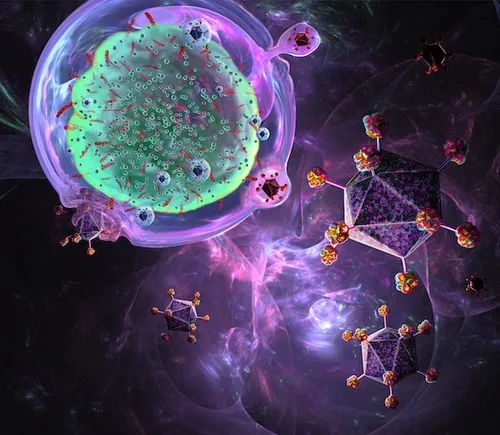The Center for Regenerative Medicine (CRM) Nepal has taken the first step to bring Chimeric antigen receptor (CAR) T Cell Therapy to treat Nepali cancer patients.
"CRM Nepal has so far successfully tested the USFDA certified CD-19 CAR in the laboratory. CRM Nepal's own CD-19 CAR T-Cell when compared to that developed by Swiss biopharma NOVARTIS and Gilead was found to be equally effective," CRM Nepal has claimed issuing a press statement. "CRM Nepal is proud to test this advanced treatment technology in Nepal for the first time and aims to indigenously produce the CAR-T cell in the GMP laboratory for human use."
CAR-T cell is a leading advanced technology with very successful results in Acute Lymphoblastic Leukemia (ALL) and Non-Hodgkin Lymphoma (NHL) cancer patients, according to Dr Sanjivan Gautam, consultant of CRM Nepal. He adds on, “Introducing this technology in Nepal is quite challenging task as the reagents and equipment used in this are very expensive and sophisticated.” Dr Gautam says that although the therapy costs about 30-50 millions in developed countries, CRM Nepal aims to make this therapy available to Nepali cancer patient with one-tenth of the cost in developed countries.
Initially, CRM Nepal aims to make this therapy available to about 100 blood cancer patients per year, says Dr Ramila Shipakar, assistant professor of Oncology, National Academy of Medical Sciences (NAMS). According to Dr Shilpakar, the aim is to gradually bring this therapy for the treatment of solid cancer as well.
According to Dr Sudhamshu KC from NAMS, the major challenges of bringing in CAR-T cell therapy in Nepal are the lack of regulatory framework and inadequate information to both patients and doctors. Dr KC says that studies carried out in high income countries have shown that CAR-T Cell therapy in addition to cancer is equally effective in fatty liver, diabetes, autoimmune and cardiovascular diseases preclinically. He further adds that CRM Nepal organized the first international conference in Kathmandu in 2023 to inform government institutions, public and doctors regarding this advanced technology.
As the availability of CAR-T Cell therapy increases, it is most likely to be a major component of healthcare management of cancer patients in low-, middle- and high-income countries, says Dr. Om Kurmi from Coventry University, UK. "The co-operation of the government institutions involved in making health policy is very important to make this therapy accessible to Nepali cancer patients. It is important for regulatory bodies such the Department of Drug Administration (DDA) and Nepal Health Research Council to facilitate the introduction of this CART-Cell with bringing in appropriate laws and regulations," Dr. Kurmi says.
Geneticist Mr Balram Gautam states that the method has its own complications as the necessary infrastructure and components are imported from western countries. "Most of the ingredients have to be imported in frozen condition, which adds to the cost and complexity of transportation," Gautam says.
So far, USFDA has approved 6 CART-Cells. CRM Nepal aims to bring these approved products in Nepal with the approval of the DDA. According to Dr. Sanjivan Gautam, CRM Nepal is working to produce CART-Cell in Nepal through collaboration and cooperation with American, German and Brazilian organizations. He has further highlighted that findings from various studies have shown that Pembrolizumab and Nivolumab combined therapy can be used to increase the effectiveness of CART-Cell in cancers other than blood cancer which can be brought to Nepal as well.

